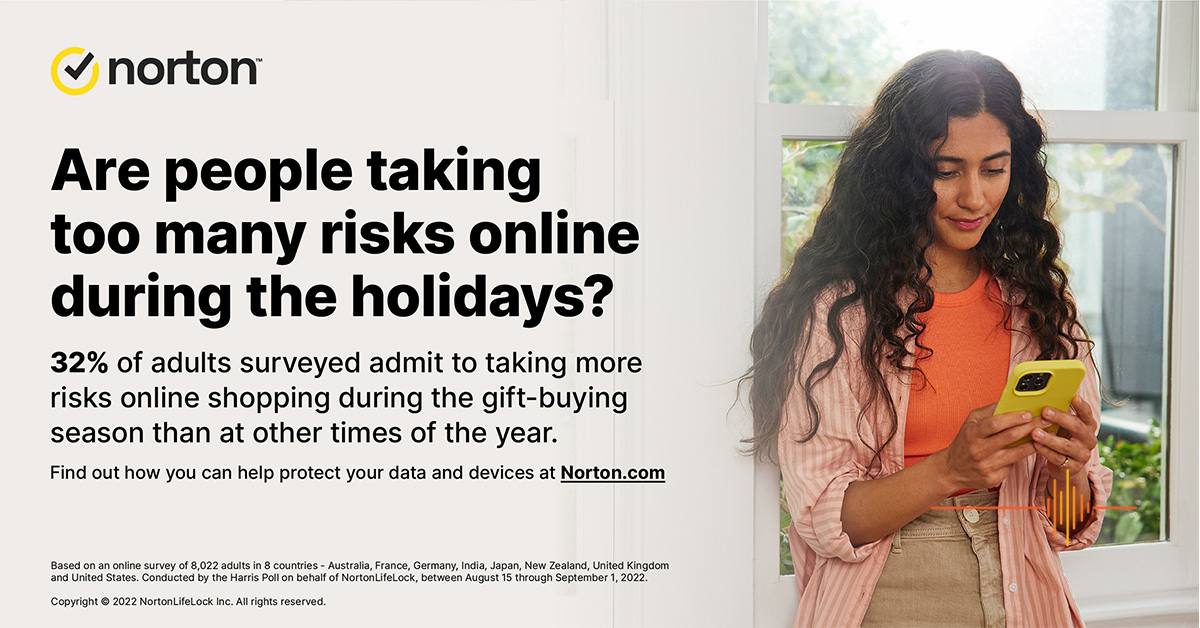It is no secret that inflation and rising cost of living has hit many Australians hard.
Research was conducted online in Australia by The Harris Poll on behalf of NortonLifeLock among 1,005 adults aged 18+.
Some 34% of Australians responded saying they would cut back on technology purchases. Despite news headlines highlighting the steadily increasing cost of living and inflation, combined with news around breaches impacting Australians, 10% of Australians say they would willingly click on questionable link offering them a good deal on technology products to help cut costs.
This is particularly dire when you consider what a bumper few months it has been for Australians, with the high profile and very successful hacks of Optus and Medibank databases. We are potentially looking at highly specific spear phishing campaigns.
“There is little doubt that recent widespread security issues across Australia are weighing on the minds of shoppers,” said Mark Gorrie, Norton Senior Director APAC, at Gen. “This holiday shopping season we’d expect people to be more aware of the issues of cybercrime, vigilance is needed around offers that seem too good to be true, it’s so important that people use caution when shopping, as they may be tempted to visit unfamiliar sites or use links in their social media without having the software to flag risks or help keep their data and devices safer.”
About 1 in 3 Australians surveyed (34%) say that they have fallen victim to scams when shopping online during the holiday season, with victims reporting that, on average, they’ve lost $566 as a result. With the expansion of technology into nearly all facets of daily life and first-hand experience with online scams, Australians aren’t strangers to threats in their online interactions. Other findings from the report showed that:
Almost 9 in 10 Australians surveyed (87%) would not be willing to click on a questionable link offering a good deal on technology products or a reduced energy bill to help cut costs due to inflation/rising cost of living.
Only 17% of Australians surveyed said they would be willing to share their own personal information or that of a friend or family member such as their name, email or birthdate to get a high demand gift or toy over the holiday season.
Almost a third of Australians surveyed (32%) are very concerned their personal details such as address, credit card details, email, etc. will be compromised when shopping online during the holiday season.
34% of Australians surveyed say they are very likely to check a retailer’s social media presence to determine if they are authentic, to help protect against potential cybercrime during the holiday season.
Of those surveyed who have fallen victim to scams during the holiday season, 49% say that these scams occurred via email, 32% on social media, 28% via text or on a third-party website and 26% via a phone call. Of these scam victims, 78% lost money as a result.
Many Australians opting for prioritizing mental health by changing online behaviours over holiday period
The Norton research also suggests most Australian adults plan to take action to protect their mental health during the holidays, which for some includes modifying their online behaviours, including media and online news consumption.
Aussies are thinking ahead, planning to prioritise managing their mental health during the upcoming holiday season. More than 4 in 5 surveyed (81%) plan to take at least one action to manage their mental health, most typically by spending time outdoors (58%), reading books (37%), and/or reconnecting with friends / family using social media (34%).
However, many surveyed report that their mental health management will include adjustments to their online behaviour – consuming more positive social media content (22%), disconnecting from social media altogether (18%), muting or unfollowing certain individuals or influencers on social media (16%), or muting or unfollowing online news (13%).
Data are weighted where necessary by age, gender, region, education, and urbanicity to bring them in line with their actual proportions in the population.
Respondents for this survey were selected from among those who have agreed to participate in our surveys. The sampling precision of Harris online polls is measured by using a Bayesian credible interval. For this study, the sample data is accurate to within + 3.3 percentage points using a 95% confidence level. This credible interval will be wider among subsets of the surveyed population of interest.



